Breathing Problems
Allergies, asthma, inflammation, and infection are just some of the conditions that can cause you to have breathing problems. The right diagnosis and treatment, along with better understanding of your condition, can help you manage your breathing problems.
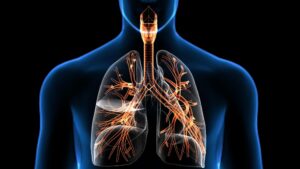
Graphic Lungs X-ray
Pritish advice is to talk to your doctor right away anytime you notice problems with breathing — especially if you also have symptoms like chest pain, a long-lasting cough, or fatigue. Some cases might require immediate treatment
What Causes Breathing Problems?
Some people have trouble breathing when they get a cold. For others, it’s caused by infections like sinusitis. Sinusitis can make it hard to breathe through your nose for a week or two, until the inflammation eases and your congested sinuses begin to drain.

Many breathing problems are long-term (chronic). These include chronic sinusitis, allergies, and asthma. They can cause symptoms such as nasal congestion, a runny nose, itchy or watery eyes, chest congestion, coughing, wheezing, trouble breathing, and shallow breathing.
Your nasal passage is a pathway for viruses and allergens to enter your lungs. So your nose and sinuses are often linked with many lung disorders. Sinus or nasal passage inflammation may trigger asthma attacks. And the No. 1 trigger for asthma is allergies.
Provided by
Vaping was designed to be addictive.
Vaping manufacturers knowingly put you at risk.
Free Evaluation
More than 50 million Americans have allergies. And 17 million American adults have asthma. The two often happen together. Without treatment, they can make life miserable.
Smoking causes breathing problems because it damages the tubes, or “airways,” that carry air to your lungs. It also damages the tiny air sacs, or “alveoli,” in your lungs that move oxygen into your blood and remove carbon dioxide (CO2). Even secondhand smoke can lead to breathing problems.
Cigarette smoking causes most lung cancer as well as most cases of chronic obstructive pulmonary disease (COPD).
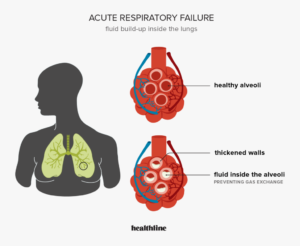
Millions of Americans have breathing problems because of COPD, which includes emphysema and chronic bronchitis. Lung cancer is less common and often doesn’t cause symptoms in its early stages. But it can lead to breathing problems, along with issues like chest or back pain and a cough that doesn’t go away.
Breathing problems may also stem from other serious problems such as tuberculosis, pneumonia, COVID-19, and lung disease related to HIV or AIDS.
Which Tests Are Used to Diagnose Breathing Problems?
Doctors diagnose breathing problems by doing a physical exam, asking about your overall health, and using various tests. For instance, pulmonary or lung function tests can measure lung function in people who have asthma. These include spirometry and a test known as a methacholine challenge.
Spirometry is a simple breathing test. It measures how much air you can blow in and out of your lungs, and how fast and how easily you can do this. It can tell whether your airways are blocked and how much. A methacholine challenge test may help with a diagnosis of asthma. Your doctor will know which test is best for your situation.
Your doctor may take an X-ray to see inside your chest, including your heart, lungs, and bones. A chest X-ray is a good test to diagnose pneumonia. But it can’t identify most breathing problems by itself. Some people with breathing problems may need a CT scan of their chest. It uses X-rays and a computer to create detailed images.
If you have long-term sinusitis, your doctor may order a special sinus CT scan.
Can Allergy Tests Determine the Cause of Breathing Problems?
Allergy tests may help your doctor find the cause of your breathing problems. One example is the prick technique. Your doctor puts a tiny drop of an allergen on your skin and pokes a needle into the drop. If you’re allergic to that allergen, your body will react by turning red at the site. You may also have itching and swelling.
Another type of skin test involves your doctor injecting the allergen extract directly under your skin. Other tests include:
- Allergy blood tests (called a RAST or radioallergosorbent test)
- A challenge test, in which your doctor gives you tiny amounts of the suspected allergen through your nose or mouth
These are less common than skin testing.
How Are Breathing Problems Treated?
Things that cause breathing problems are known as triggers. Avoiding triggers is the No. 1 way to control allergies and asthma. It may help to wear a dust mask when doing housework or yard work, limit contact with a furry pet, wash bed linens at least once a week, stay indoors during peak pollen times, and change the filter on your air conditioner often.
Medications are also important in treating breathing problems. Oral or nasal allergy drugs such as antihistamines and decongestants may make it easier to breathe.
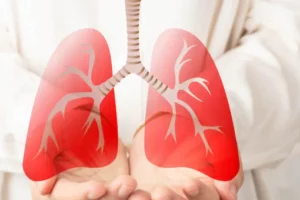
Can breathing problems be prevented?
If you have any breathing problems, and you smoke you should quit. Call 13 78 48 or go to the Quitline website.
If you have any medication for breathing problems, such as puffers, use them as directed by your pharmacist or doctor. You can also:
- take care of yourself and any underlying cause of feeling short of breath
- stay calm and stand or sit up straight, which helps the air get in and out more easily
- avoid pollution
- avoid anything you are allergic to
- lose weight if you are overweight
- have a plan for what to do if things get worse
Inhaled steroids can help. These drugs reduce inflammation in your airways. Allergy shots lower your sensitivity to allergens and may ease some breathing problems.

For asthma, inhaled or oral drugs help open airways and fight inflammation. These medications help ease or even prevent airway blockage and extra mucus. People who have asthma must control inflammation in order to keep their airways open and lower sensitivity to asthma triggers including:
- Viral infections (cold or flu)
- Pollen
- Pet dander
- Mold spores
- Dust mites
- Cockroaches
- Irritating pollutants in the air
- Fragrances and fumes
- Smoke
- Food allergies
Even exercise and cold weather can trigger asthma in some people.
Can Medical Intervention Help Manage Breathing Problems?
People sometimes seek medical help only after they’ve had breathing problems for weeks or months. By the time they start taking medications, they may have damage that takes longer to heal.
The right diagnosis is important before you can treat and prevent breathing problems. Each of us is different. The specific medication and treatment that works for a family member or friend may not be the best one for you.
If you have symptoms of one or more common breathing conditions, talk to your doctor. Prevention and treatment measures can help relieve and possibly end the problems.
Reference
https://www.webmd.com/lung/breathing-problems-causes-tests-treatments#1


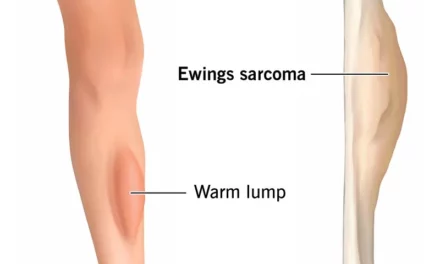

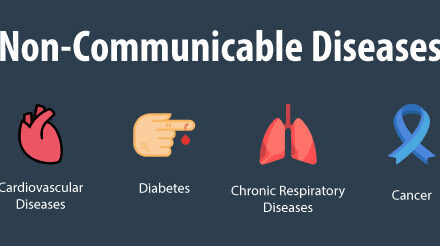







Reading your article helped me a lot and I agree with you. But I still have some doubts, can you clarify for me? I’ll keep an eye out for your answers.